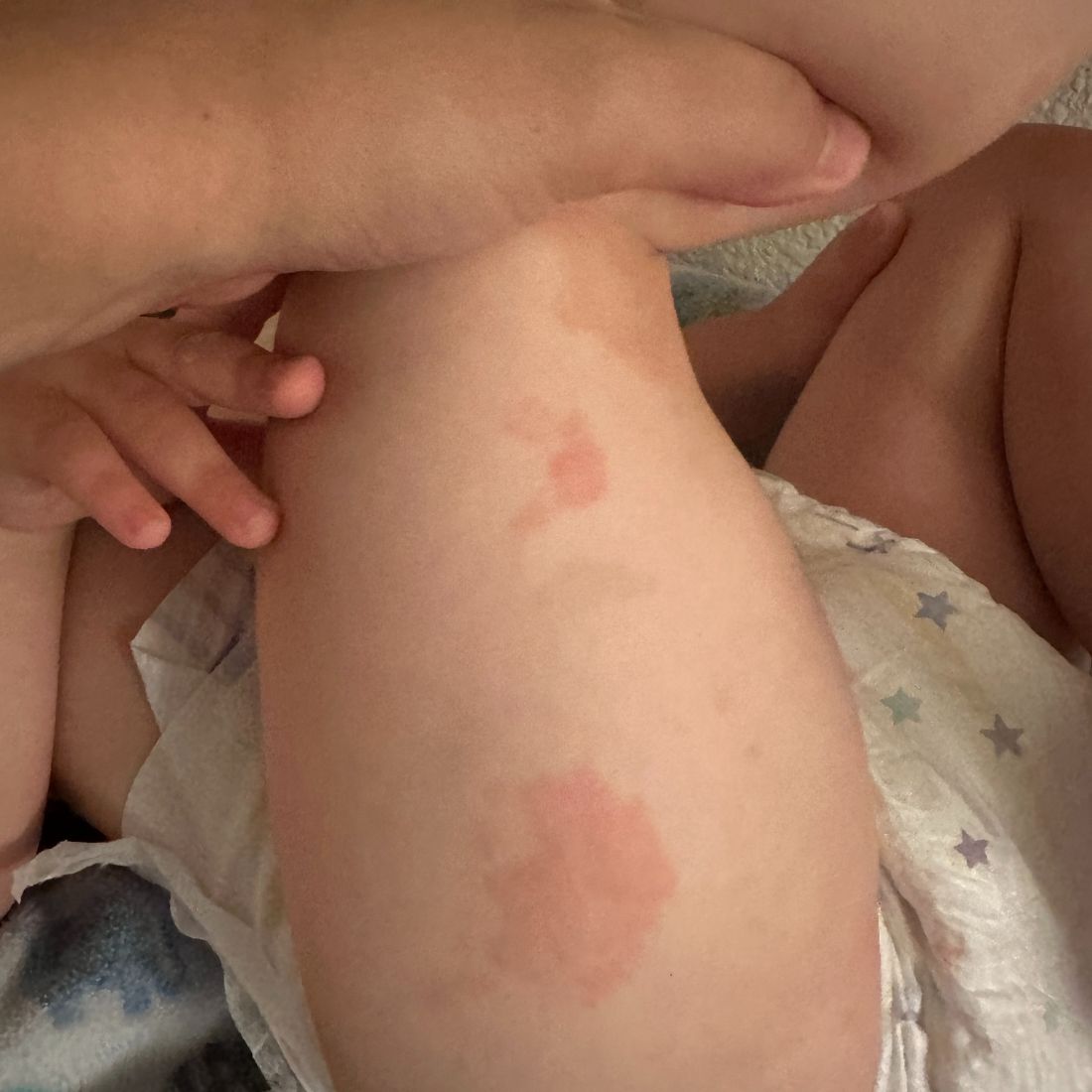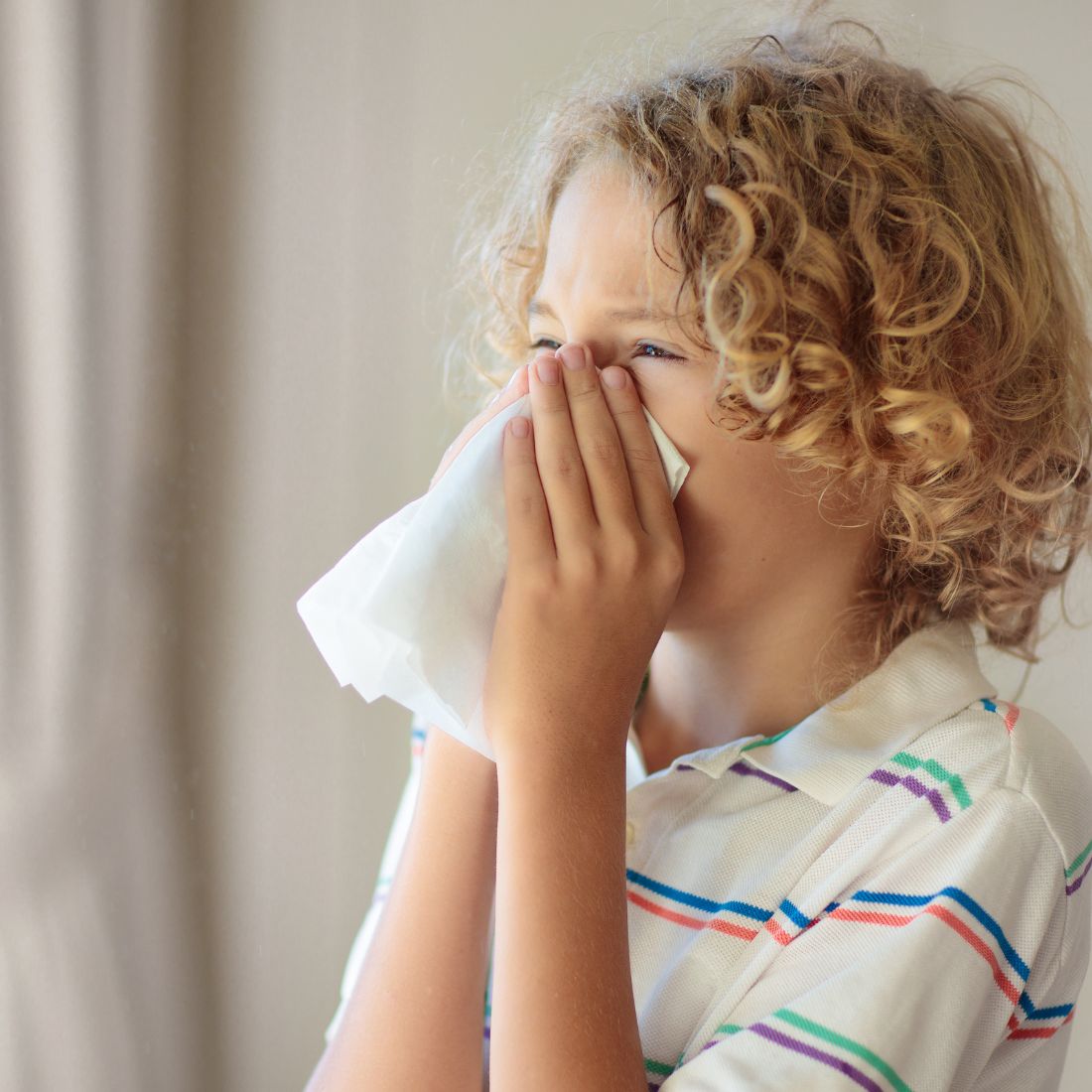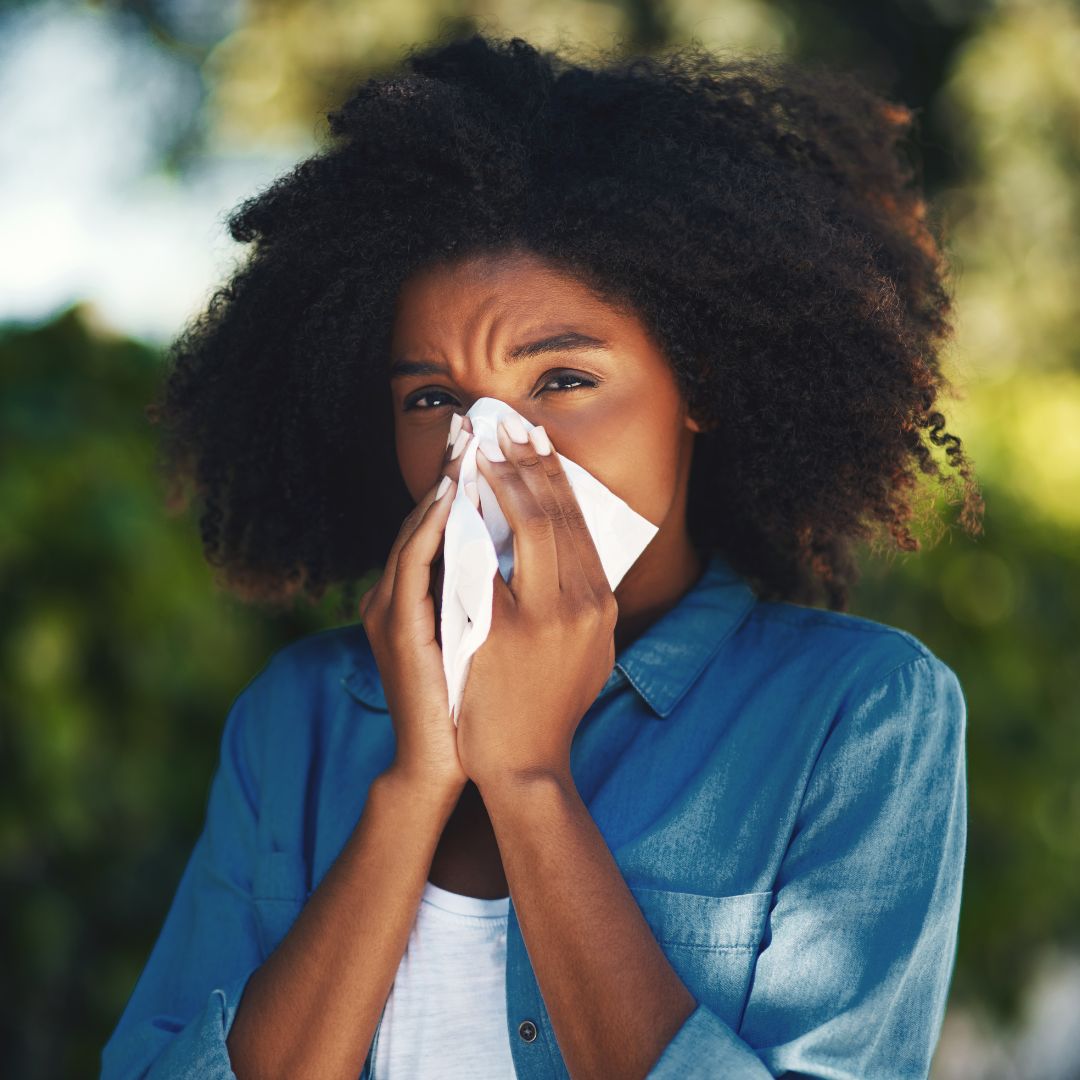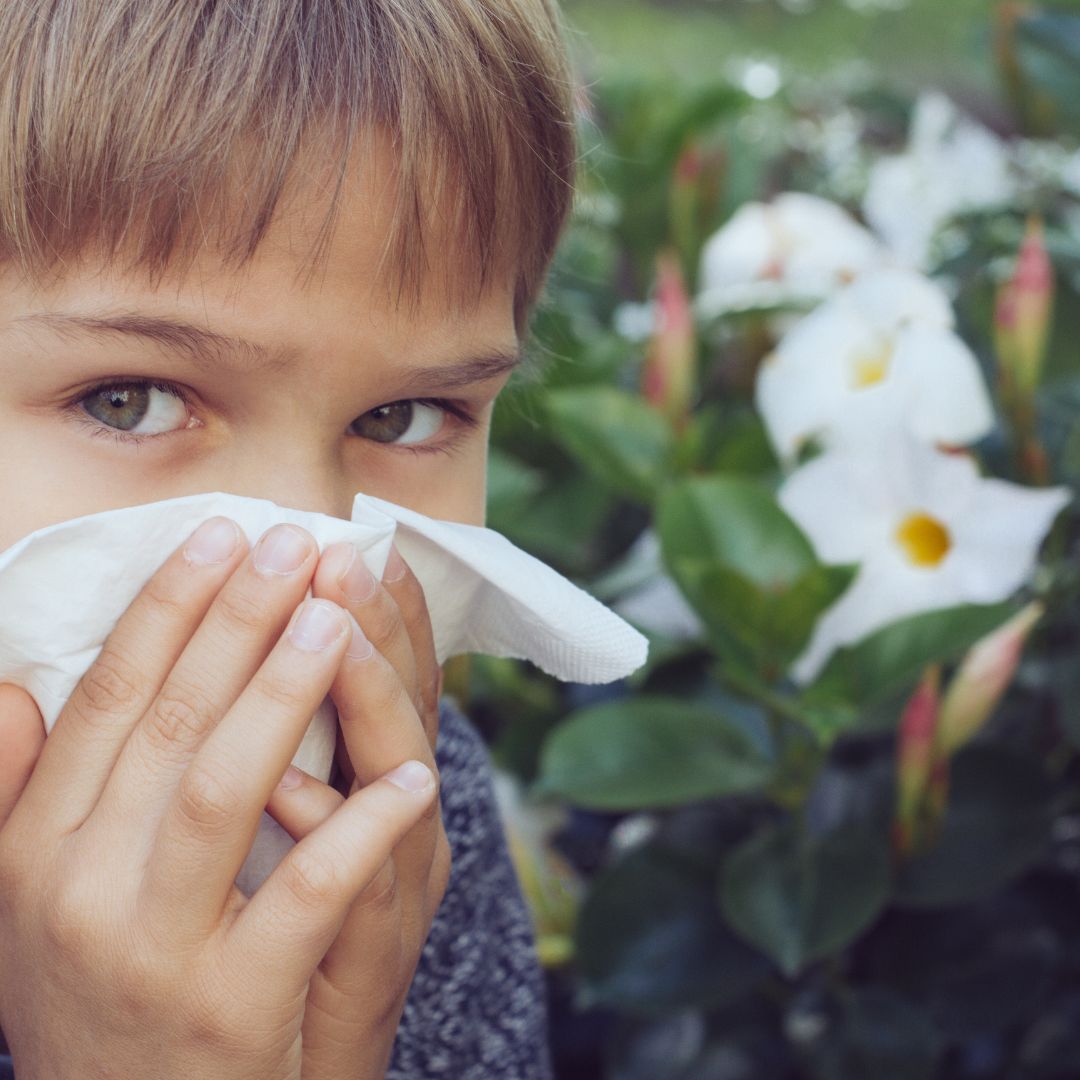Finding Relief for My Son’s Eczema: A Mom’s Journey
A mother’s journey managing her son’s eczema reveals how Forces of Nature Kids products brought relief. From dry winters in Idaho to humid Texas summers, discover tips for caring for sensitive skin and the magic of natural remedies.
Learn more6 Fun Ways to Help Your Child Beat Seasonal Pollen Woes!
Conquer seasonal pollen allergies with 6 fun tricks! From backyard pollen spotting to indoor safaris and bath time adventures, we've got the playbook for turning sneezy days into smiles! Let's make allergy season a breeze!
Learn more5 Easy Ways to Tackle Seasonal Allergies in Kids
As seasons change, kids with allergies face fresh challenges, from sneezing fits to itchy eyes. With 7.1 million US kids affected, this post explores triggers and signs, offering practical tips for relief.
Learn moreSnooze or Lose
Discover how a good night's sleep can supercharge your child's academic success! Dive into the science behind sleep, its vital role in learning, and easy tips to ensure your little one gets the rest they need to shine in school.
Learn more5 Tips on Treating and Managing Eczema Rashes in Children
As winter settles in, eczema outbreaks can become a frustrating challenge for your child. Eczema, or atopic dermatitis, presents as a persistent skin condition marked by inflammation, redness, and itching. Affecting around 10 to 20 percent of children globally, eczema can persist into adulthood, making it essential to manage effectively
Learn moreChildhood Stress: 4 Signs Parents Should Be Aware Of
By Dr. Peter Klapper Ph.D. Contrary to popular belief, adults aren't the only ones suffering from stress—children are, too. The Annie E. Casey Foundation reports that 11.8% of American children experience anxiety or depression. Fortunately, there are things you can do as a parent to help your kids cope with stress. It's crucial to address these issues before they worsen, as failing to do may result in chronic mental, emotional, and physical conditions. Conversely, helping kids cope with challenges is vital to secure their well-being and facilitate emotional and cognitive development amid extreme life events. In this article, we'll delve deeper into childhood stress—its causes and signs and some approaches to help alleviate your kid's stress and anxiety. What is Childhood Stress?Childhood stress is a result of anxieties and pressures that young people experience in daily life. They often occur due to powerful events, like sports or academic and social expectations.Stress is a natural part of life, and you should not attempt to isolate your child from stress fully. Not every stressful event is terrible since they help kids build resilience and character.However, problems arise when children can't handle intense emotions. Their failure to cope can harm their mental health, so you must identify their stressors and help them navigate their feelings effectively to avoid their stress from affecting their health and well-being.Causes of Childhood StressThe first step to treating the effects of childhood stress is to identify its triggers. As mentioned, drastic life changes impact a kid's mind, regardless if it's a positive or negative event, so you need to be aware of what may cause their anxieties. Some common causes of stress in childhood include: academic pressure; family conflicts; bullying; trauma; and health issues. 4 Signs of Childhood StressStress manifests in different ways, but their common denominator is they emotionally, mentally, and physically change children and how they interact with their environment. Look out for these signs of childhood stress.Behavioral changesThose who undergo stress in childhood may show changes in their behavior. Children may suddenly become reserved and standoffish, leading to emotional outbursts inconsistent with their usual behavior. These behavioral changes include irritability, aggression, and withdrawal.Emotional changesStress also impacts how kids handle their emotions, making them more emotional than usual and exhibiting compulsive behavior. As such, stress can trigger notable conditions: anxiety, depression, or mood swings.Physical symptomsStress also manifests as physical symptoms that could exacerbate children's anxieties. Sleeplessness and poor appetite may weaken their bodies, leading to more severe illnesses. It's essential to keep tabs on their physical well-being, which might be at risk if they show the following symptoms: headaches; stomachaches; Cognitive changesWhile children are usually hyperactive and have poor attention spans, sudden cognitive changes may indicate stress. For example, performing in school becomes significantly challenging, leading to bad grades and further pressure. Other indications include: poor concentration; forgetfulness; How to Help Kids with Stress ManagementTeaching kids how to cope with changes is essential to becoming well-rounded individuals. In effect, they won't suffer from illnesses or drastic behavioral, emotional, and cognitive changes due to unmanaged stress.Foster a supportive relationshipKids undergoing sudden life changes without emotional support from trusted adults may feel alone. So, listen and talk about their grievances to let them know their feelings are valid and safe and that you will support them through the most challenging times.Teach and model positive coping skillsIt's also important to introduce healthy coping mechanisms to help the child deal with stress by themselves. You could practice emotion labeling, positive self-talk, and breathing exercises. Then, teach them how to communicate their feelings effectively, be patient, and take measures to address and minimize their stressors. The goal is for them to handle their feelings even if help is not around.Create a stress-free home environmentFostering a stress-free household is essential. After all, the home should be where your kids can have a break from worries. A frantic, unorganized environment can trigger or exacerbate stress. As parents, take the time to participate in their favorite activities to foster positive emotions at home and offset pressures.Encourage physical activity, healthy eating, and restful sleepHelp your child deal with worries by adopting a healthy lifestyle. Exercise is an excellent start to reduce stress and treat anxiety and depression. Then, ensure they eat nutritious meals and get eight hours of sleep every night. Forces of Nature's Sleep Well for Kids can help them rest and wake up refreshed if they have trouble falling asleep.Consider counseling and therapySometimes, lifestyle changes aren't enough to relieve stress, especially after traumatizing events. If your advice doesn't ease their worries, it may be time to contact mental health professionals. Therapists can intervene and help young family members practice positive mental health habits that can last well into adulthood.Manage symptoms with homeopathic treatmentsSevere cases of stress need medical intervention. However, anti-anxiety meds usually have various side effects, like dizziness, fatigue, headaches, and nausea, which may worsen your child's condition.Fortunately, natural treatments ease stress without side effects. For example, Calm Mood for Kids reduces mood swings and relaxes them. Consider talking to a homeopathic doctor about stress-relieving remedies to alleviate children’s anxieties.Keep Your Child Calm with HomeopathyStress becomes inevitable as your child grows, so it's crucial to help them understand how to deal with their feelings. Watch out for signs of behavioral, physical, mental, and emotional changes, then determine the right approach to help them cope. In turn, they can become emotionally intelligent adults who can take on whatever may come their way.Luckily, you don't have to do it alone. Forces of Nature's all-natural, USDA Certified Organic homeopathic medicine can help children cope with stress safely to grow into well-rounded adults. Visit our shop today!
Learn moreWhat Causes Adult-Onset Asthma and How Do You Manage It?
By Dr. Peter Klapper Ph.D. A common misconception surrounding asthma is that it only develops during childhood, with children outgrowing it once they reach adulthood. Unfortunately, you can still contract asthma well into your older years. Statistics say among the 25 million Americans with asthma, 8.4% are adults.Learn what makes adult-onset asthma different from childhood asthma, its causes, and how to treat asthma in adults through this blog.Adult-Onset Asthma vs. Childhood AsthmaAdult-onset and childhood asthma share similar traits, such as symptoms and standard treatment. However, these conditions also differ in various aspects.For one, asthma symptoms tend to be more severe among adults, perhaps because of age-related lung function decline. The chest wall stiffens as you age, which makes managing asthma more difficult, especially for middle-aged adults. Thus, adult-onset asthma typically requires daily treatment and a significant lifestyle change.On the other hand, childhood asthma produces mild symptoms that come and go. Treatment is only necessary during an attack.Some cases of childhood asthma also go away naturally in puberty, although relapse is possible. In comparison, adult- or late-onset asthma can persist for extended periods. It requires long-term treatment for proper management and to prevent the condition from worsening into respiratory failure.What Causes Adult-Onset Asthma?The exact cause of the disease is difficult to pinpoint. However, the following factors increase your likelihood of developing asthma in adulthood.1. Childhood asthmaOne of the most common risk factors of late-onset asthma is getting the disease early on. Per studies, 3% to 5% of the general population with childhood asthma may still experience asthma symptoms in early adulthood and beyond if not appropriately managed.2. Family history of asthmaA person’s genetic makeup plays a crucial role in developing late-onset asthma. Research suggests that having a parent who has asthma makes you three to six times more likely to develop the respiratory disease, whether early or later in life.3. SmokingCigarettes, specifically the smoke it produces, are among the most common allergens that trigger asthma. Smoke from cigarettes irritates your bronchial tubes, causing them to swell, narrow, and fill your airways with mucus. If you or someone you live with is a smoker, you’re more likely to develop asthma in adulthood.4. Hormonal changes in womenHormones involved in the onset of menstruation, pregnancy, and menopause, like progesterone and estrogen, can trigger asthma in women. During these hormonal changes, your senses may be more hypersensitive, and everyday things like exercising, exposure to airborne pollutants, and other asthma-inducing factors make you prone to adult-onset asthma.5. Gastroesophageal reflux (GERD)GERD is a digestive disorder where the food and acid from your stomach flow back into the esophagus, causing inflammation and irritation. Stomach acid that repeatedly streams back into your air pathways can irritate and damage the esophagus linings.6. ObesityExcessive body weight can lead to changes in lung function and increase the risk of developing respiratory conditions, including asthma. Obesity can cause a decrease in lung volume and compliance, making breathing more difficult and contributing to asthma development.7. Exposure to environmental irritantsEnvironmental irritants include many substances, such as air pollution, dust, mold, pet dander, and chemical fumes.When inhaled, these irritants can inflame air pathways and produce symptoms such as coughing and sneezing. Over time, repeated exposure to these irritants can cause chronic inflammation and remodeling of the airways, leading to adult-onset asthma.Tips for Managing Asthma in AdultsLifelong asthma can drastically impact one’s quality of life. To help ease the symptoms, here are tips for managing adult-onset asthma.1. Learn your triggersPrevention is the key when you have asthma. Knowing your triggers lets you avoid the particles and stressors that aggravate your condition, helping you reduce the frequency of your asthma attacks.You can keep a diary of symptoms and triggers to help you remember. This diary will also be helpful to health professionals and your loved ones, so they know how to take care of you when you need assistance.2. Quit smokingQuitting smoking is your best course of action in managing adult-onset asthma, as this unhealthy habit stifles lung capacity and aggravates respiratory complications. It would be best to quit smoking with the help of a professional.3. Exercise regularly, eat healthily, and get enough sleepRegular exercise can improve lung capacity and overall health. Aim for at least 30 minutes of moderate activities, such as walking or cycling, each day of the week. In addition, eating a healthy diet rich in fruits, vegetables, whole grains, and lean protein can also help maintain optimal lung function.Following the recommended eight hours of sleep is also advisable because it ensures your body responds positively and benefits from healthy food and exercise.4. Practice breathing exercises for asthmaDiaphragmatic breathing exercises help improve your lung capacity and breathing efficiency. It also lets you relax and mitigate stress and tension, which are common asthma triggers.5. Try homeopathic remediesHomeopathic remedies are alternative medications that utilize highly diluted forms of plants and minerals. These remedies do not introduce harmful synthetic chemicals to your body and can help regulate and prevent asthma episodes.Beat Asthma NaturallyAdult-onset asthma is a challenging ailment since many factors can trigger it. Fortunately, by knowing what causes it, living a healthier lifestyle, and seeking natural treatments like homeopathy, you can manage asthma in adulthood better.If you’re looking for a reliable brand of homeopathic medicine, look no further than Forces of Nature. Our high-quality, FDA-registered, USDA-certified organic remedies provide only the best in natural homeopathic treatments. Start browsing our shop today for access to a wide selection of safe and effective homeopathic medicine to help you overcome different illnesses!
Learn more8 Homeopathic Remedies for Sleeplessness
Are you having trouble falling asleep? Rest assured that you're not alone. According to Johns Hopkins Medicine, one-third of adults experience sleeplessness or insomnia, which ranges from occasional restlessness to chronic disorders that may last years, if not a lifetime, if left untreated.
Learn more5 Types of Childhood Sleep Disorders & Symptoms
Adequate quality sleep is crucial for children's physical and mental development, helping children stay healthy, maintain an appropriate weight, and achieve cognitive and emotional growth.
Learn moreInsomnia and Homeopathy: Symptoms, Causes, and Treatments
Insomnia is a sleep disorder that requires everyone's awareness. Besides decreasing quality of life, insomnia can often lead to more severe diseases. As such, treating insomnia at the onset is a must.
Learn moreThe Science Behind Homeopathy and Allergies
Allergies can be troublesome. They require you to look out constantly for allergens that can cause serious reactions. Treatment-wise, synthetic allergy medication can produce inconvenient side effects, such as drowsiness.
Learn moreHow To Relieve Your Child’s Allergy Symptoms
While cold symptoms can mimic a reaction to an allergen, there is a difference, and various ways to treat it. In fact, it’s estimated that 7.1 million kids in the United States deal with environmental allergies. So, how can you help your child?
Learn more












